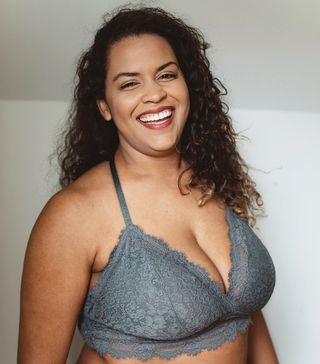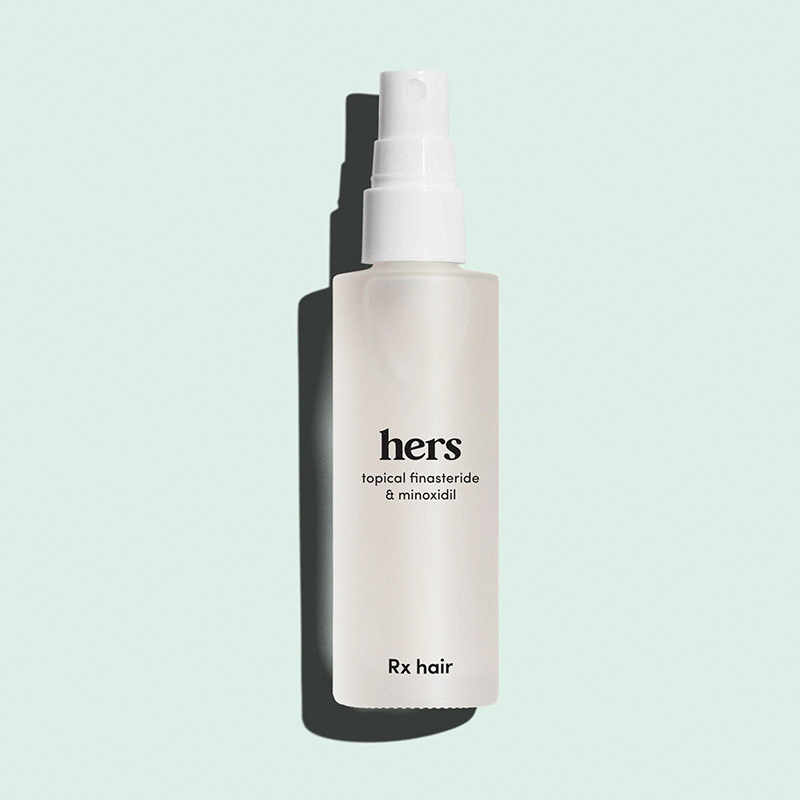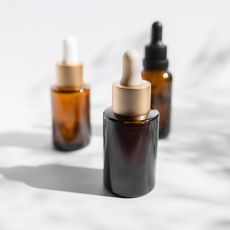13 Questions You Should Definitely Ask at Your Next OB-GYN Appointment
We’re not sure about you, but we never particularly look forward to a trip to the gynecologist’s office. First of all, certain tests or procedures we might undergo at the OB-GYN can have potential to be a tad physically uncomfortable (hey, annual PAP smear), but the conversations, questions, and concerns that surround our visit can cause emotional discomfort as well. We’d be lying if we said we weren’t embarrassed (or even scared) to ask our gynecologist certain questions. Sometimes, even if we’re not embarrassed, we don’t know what to ask, so we just don’t ask anything.
Apparently, that uncertainty and guarded silence are pretty much the norm. As Michael Troy, MD and OB-GYN with the Institute for Women’s Health, told Bustle last year, many people are reluctant to ask questions that may be deeply private or personal to them, but it’s important to remember there’s pretty much nothing you could ask or bring up to your gyno that they haven't answered or dealt with before. “We encourage our patients to work up the courage and have an honest conversation with us,” he explained to the publication. “It helps us treat our patients better, it creates a more comprehensive health picture and, most importantly, it allows you to get the answers you’re seeking from a trusted and professional source."
Additionally, and as Omnia M. Samra-Latif Estafan, MD, of Nelly De Vuyst/ BioFemme shares with me, asking questions (regardless of how scary, silly, or embarrassing they may seem) acts as a key player to preventative health, which, ultimately, is the key to your optimal health. For instance, it’s always better to ask about a concern or topic before it begs direct treatment or consequence. But again, even the most important questions seem to bear less weight if we’re too embarrassed to ask them—a barrier we’re looking to break down here at The/Thirty. Ahead, we’ve gone ahead and asked, scouted, brainstormed, and searched for all the most important (and yes, potentially squirm-inducing) questions you should most definitely ask at your next OB-GYN appointment. Oh, and we even have some answers for you too. Keep scrolling, and consider this your springboard.
1. Are recurring yeast infections and/or UTIs normal?
“Having a yeast infection every time a woman has her period or a urinary tract infection with every intimate encounter is not normal,” says Estafan. Some women, unfortunately, dismiss this as this is their issue and something they have to deal with on their own. In fact, the situation may continue with the continued use of over-the-counter antifungals or frequent antibiotic use, so it’s good to bring this kind of thing to your gynecologist directly—not just your local pharma aisle.”
2. Why is it painful when I have sex?

“Some women endure pain and discomfort with their sexual relations, embarrassed that something must be wrong with them and feel that there may not be any help,” Estafan shares. “When I perform an exam and see gynecological changes that are not expected or normal, such as vulvar skin changes, they are relieved when I confirm how uncomfortable it must feel. I encourage women to ask questions—there are many things that can lead to painful sex such as infections, lack of lubrication, hormonal changes, and side effects of medications. Women feel silly or that their concerns are not important enough to discuss, or at times they have been dismissed in the past by other medical practitioners. However, this is something the right gynecologist will be able to discuss and investigate openly and honestly with you.”
3. What’s the right method of birth control for me?
Or even is birth control right for me? There have never been more options surrounding birth control, but choosing the right method—or choosing to go off birth control—can feel scary, confusing, or daunting. Depending on a birth control’s effectiveness, cost, and maintenance, some may be better suited to your needs and lifestyle than others. Therefore, it’s a valuable conversation to have with your gyno and you can also discuss other related questions about any hormonal implications, how an IUD works, and more.
4. Does my vagina look "normal?"

First things first, there is no "normal" when it comes to how we look down there—from the length of our labia to the prominence of our clitoris to the color of our skin, everyone looks unique.
"If you're worried about the appearance of your vagina, the odds are very likely you’re the only one who's noticing what you perceive as 'different,'" Troy tells Bustle. That said, if you notice any changes or have a gut feeling that something just looks off, you should definitely make an appointment with your gynecologist to get checked out and discuss your vaginal health. That's their job!
5. What's up with this bump?
More than likely, any bumps you notice in your vaginal area are probably normal and nothing to worry about, but again, if you notice something new or bump that's persistent and doesn't seem to go away, it's definitely time to get it checked out at the OB/GYN. According to Christine Greves, MD, a certified obstetrician and gynecologist at the Winnie Palmer Hospital for Women and Babies, who talked to Bustle, many bumps or irregularities can be caused by shaving, a and a condition called folliculitis.
In more rare cases, however, a mysterious bump could be a skin tag, sebaceous cyst, genital warts, or herpes, and this is something that your gynecologist will want to see and perhaps biopsy to get to the bottom of. Again, gynecologists have seen it all, so try not to let embarrassment or fear get in the way of booking an appointment.
6. Do I need a mammogram?

Typically, a gynecologist won't recommend a mammogram until your early- to mid-forties, but if you have a family history of breast cancer, you may wish to start annual screenings at an earlier age. This is something to definitely bring up at your next OB-GYN appointment and also make sure to perform regular breast exams on your own time as well. When you're getting a checkup, your gynecologist will perform their own exam and can explain the best way to stay on top of things at home too.
7. How often do I need to be tested for STIs/STDs?
Since some STIs and STDs have no physical symptoms or might not display symptoms until later in life, it's good to maintain an open dialogue on the subject with your gynecologist. You should definitely get tested regularly, especially if you've had unprotected sex, have a new partner, or have noticed any worrisome symptoms that could be linked with infection or disease.
8. How do I know if there's something off about my vaginal discharge or scent?

First of all, discharge is 100% healthy and normal, and really, there's only concern if it's causing issues of discomfort (think pain or itching) or it's taking on a different texture, color, or amount.
"If your discharge is associated with itching and has a white cottage cheese appearance, then that would lead us toward thinking that you may have a yeast infection," Greves tells Bustle. "If you have a grayish and thin type of discharge that has a fishy odor especially after sex, then that could lead us toward thinking that you can have bacterial vaginosis. All of this requires an exam usually, though, because we need to make sure that there are not any other types of infections causing it like gonorrhea, chlamydia, or trichomoniasis, all of which are transmitted by sex."
The same goes for scent—especially if you're on your period or have just exercised, odor is normal and to be expected Kelly Kasper, OB-GYN at IU Health, clarifies to Bustle. But, if there is discomfort, or abnormal discharge accompanying your smell, then it might be time to get checked out by your gyno.
9. What kind of lube should I be using?
Despite what you might read on the internet, please don't reach for your kitchen cabinet's stash of oils to keep you and your partner lubed up during sex. (Friends, coconut oil isn't latex-friendly and can mess with your pH down there!) Instead, reach for one of these all-natural options or consult firsthand with your OB-GYN to scout out a suitable, gyno-approved option.
Typically, plain water-based varieties are a safe bet while lubes with specialty flavors or sensations can be tricky or problematic if you're prone to sensitivity or irritation.
10. Why is my period so painful?

No matter what, that time of the month isn't the most pleasant. Symptoms like cramps, breast soreness, and head and bodyaches are common, but if your pain is intolerable and impacts your day-to-day life in a way that incapacitates you, that's something to take note of and bring up to your gynecologist.
"If your periods are very painful or have been getting worse over time, it can be a sign of endometriosis, uterine fibroids, or other potentially more serious health conditions. "It's important to speak with your doctor about this, as there are many solutions that can make these conditions more manageable. You don't need to suffer in silence," says Shari Lawson, MD, a Johns Hopkins gynecologist.
11. What's the protocol for cleaning down there?
So this is a little confusing, and honestly, there's been some back and forth within the medical community about whether or not, and how, we best keep ourselves clean down there. Yes, there are plenty of products available devoted to keeping your feminine hygiene in check, but there are also those who classify the vagina as "self-cleaning." That said, most experts we talked to recommend a daily wash using a basic, fragrance-free soap and water.
“As a gynecologist, I suggest that you clean your vulva and labia every day as if it were any other part of your body," Sherry Ross, MD, and Santa Monica–based OB-GYN, explains to Glam.com. She suggests using two fingers, swipe your knuckles along the labia with a gentle, non-fragrant soap and try to avoid other popular products like heavily scented cleansers and cloths, freshening sprays, and talc powders.
12. Can I get pregnant on my period?

Yep, you most definitely can, but the likelihood of pregnancy will also greatly depend on how long your cycle is.
“If you have a short interval between each period—meaning you ovulate early in the cycle—you can get pregnant,” Ross tells Glam.com. “Many people don’t realize that sperm lives for three days. If you have sex on day six of your period and ovulate on day nine, you could get pregnant.”
13. My libido has tanked—why?
The state of our libido is way more dynamic than static and depending on stress, hormones, health, the state of our relationships, and so much more, it will likely ebb and flow all throughout our life. That said, if it's bothering you, impacting your sex life, or just making you straight up curious, it's a good idea to bring it up with your gyno.
According to the same article on Glam.com, Dr. Ross urges that you speak up about your sex life, or lack thereof, during appointments. “Since this is a complicated and confusing subject, it’s important to find a healthcare provider you feel comfortable with in order to better understand how you can find your sexual appetite again.”
Next up, here's what to do after sex to make sure your reproductive health is 10/10.
Disclaimer
This article is provided for informational purposes only and is not intended to be used in the place of advice of your physician or other medical professionals. You should always consult with your doctor or healthcare provider first with any health-related questions.
Erin has been writing a mix of beauty and wellness content for Who What Wear for over four years. Prior to that, she spent two and half years writing for Byrdie. She now calls Santa Monica home but grew up in Minnetonka, Minnesota, and studied writing, rhetoric, and communication at University of Wisconsin, La Crosse. She studied abroad in Galway, Ireland, and spent a summer in L.A. interning with the Byrdie and Who What Wear family. After graduating from UW, she spent one year in San Francisco, where she worked as a writer for Pottery Barn Kids and PBteen before moving down to L.A. to begin her career as a beauty editor. She considers her day-to-day beauty aesthetic very low-maintenance and relies on staples like clear brow serum (from Kimiko!), Lawless's Lip Plumping Mask in Cherry Vanilla, and an eyelash curler. For special occasions or days when she's taking more meetings or has an event, she'll wear anything and everything from Charlotte Tilbury (the foundations are game-changing), some shimmer on her lids (Stila and Róen do it best), and a few coats of the best mascara-type product on earth, Surratt's Noir Lash Tint.
-
 This Founder Shares Why We Should Start Celebrating Rest
This Founder Shares Why We Should Start Celebrating RestBurnout is nothing to be proud of.
By Kia Topps
-
 I Asked J.Lo's Trainer for His Very Best Fitness Tips
I Asked J.Lo's Trainer for His Very Best Fitness TipsGunnar Peterson has thoughts on how to get moving this season.
By Kia Topps
-
 This Style Influencer Turned Founder Shares Her Favorite Ways to Start the Day
This Style Influencer Turned Founder Shares Her Favorite Ways to Start the DayA morning routine from London.
By Candice Aman
-
 13 Products That Will Step Up Your Self-Care Game From Home
13 Products That Will Step Up Your Self-Care Game From HomeGet that glow from within.
By Natalie Gray Herder
-
 These 8 Foods Are the Worst for Rosacea—Here's What to Eat Instead
These 8 Foods Are the Worst for Rosacea—Here's What to Eat InsteadControl those flare-ups.
By Sarah Yang
-
 If You're Super Stressed Out, These 17 Things Can Make You Feel Better
If You're Super Stressed Out, These 17 Things Can Make You Feel BetterTry them.
By Sarah Yang
-
 These Essential Oils Will Relieve Your Stress ASAP
These Essential Oils Will Relieve Your Stress ASAPBreathe in. Breathe out.
By Sarah Yang
-
 I Host a Mental Health Podcast—Here Are 5 Important Things I've Learned From It
I Host a Mental Health Podcast—Here Are 5 Important Things I've Learned From ItGive Been Better… HBU? a listen.
By Sarah Yang

